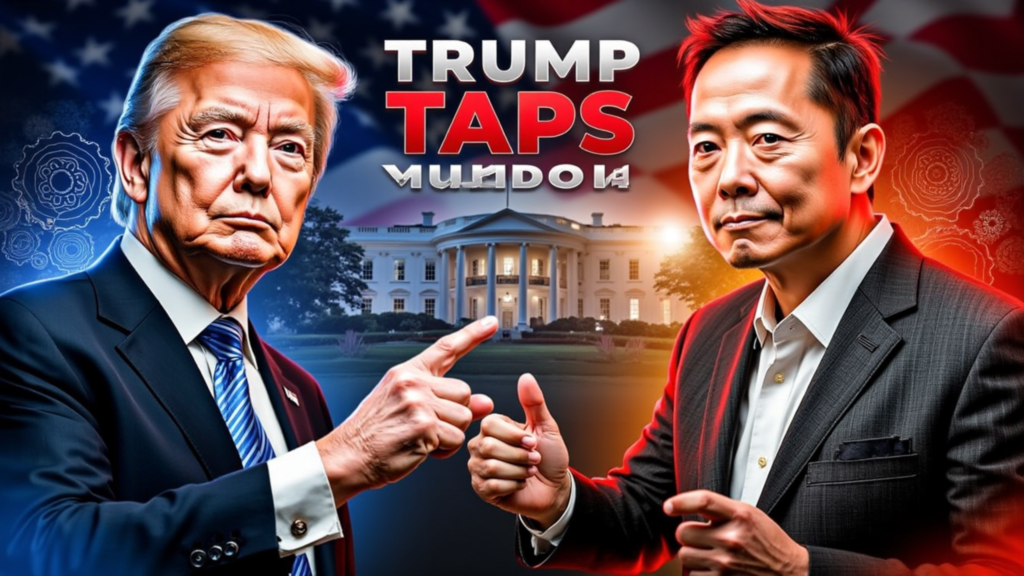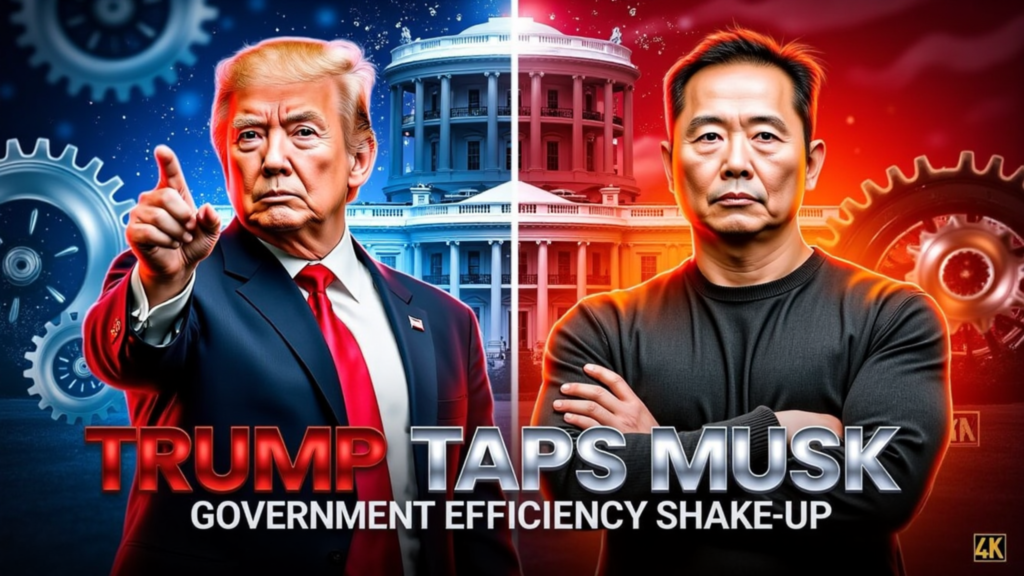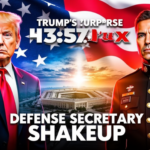
Trump nominates Elon Musk for Efficiency in US Govt.Implication for the US Government
Musk’s history in technology and innovation-included the private development of electric cars and rockets-which is the opposite traditional path to leadership in government. In an interesting but rather surprising development, it was reported last week that former U.S. President Donald Trump said he was nominating billionaire entrepreneur and pioneer of electric cars and space rockets, Elon Musk, as the head of a new government program intended to make the federal operating machineries more efficient.
Establishment of the Department for Government Efficiency
However, an appointment of Elon Musk in charge of a new Government Efficiency Department by a newly elected president of the United States points to changes in how the US government wishes to deal with the long-standing issues of bureaucracy, waste, and inefficiency in the operations within federal agencies, reduction of government waste, and application of innovative technologies to make the government more agile and effective.
This, as a matter of fact actually coincides with the rest of Trump’s policies: shrinking government spending and streamlining operational efficiency-a core component of his political agenda since entering the White House. This further demonstrates that he feels the private sector would be capable enough to successfully accomplish transformative tasks in the reformation of how the government performs its tasks. No one can surpass Elon Musk when it comes to radical endeavours in the tech sector, and it is expected that he would bring this idea of disruption and efficiency to this behemoth of a bureaucracy in the United States.
Who is Elon Musk?

Next to no person needs an introduction to Elon Musk. He is a co-founder of two ventures: Tesla Inc. is an electric car company and SpaceX is an aerospace manufacturer. It is under their bold, unconventional leadership that the sectors from automotive to aerospace have changed with the change he brought to the industry through the companies.
Under Musk leadership, Tesla has emerged as one of the leading electric vehicle manufacturers in the world, building out solar energy, and developing autonomous driving technology. On SpaceX, Musk transformed the whole landscape of space travel-for instance, first private funded spacecraft to enter into orbit and return to Earth, and releasing astronauts to the International Space Station.
Most especially, he has been phenomenal in taming the type of giant problems one associates with industries such as automobiles and aerospace. This has made many to view him as someone who can grapple with complex problems and solve them in good time. Of course, his ability to push for private sector innovation made him a natural, albeit unorthodox, choice in this regard by government.
The new Government Efficiency Department will, as a central mandate, eliminate decades’ worth of inefficiencies that have plagued the federal agencies. Those inefficiencies often arise from antiquated technology, bureaucratic red tape, and lack of accountability over where taxpayer dollars are expended. So, the real test is now before Musk: reduce those inefficiencies.
- Technological Innovation: One of those things that Musk is going to be sure to have in his playbook, probably is the introduction of cutting-edge technologies into government operations. Whether it’s in terms of applying AI to streamline the administrative tasks, the machine learning algorithm for budget forecasts, or using advanced data analytics to inform better policy decisions, the experience of Musk with disruptive technologies is going to have a very significant impact.
- Public-Private Partnerships: Experience work with public-private partnerships by Musk- SpaceX working relationship with NASA may be used to help build partnerships among the federal agencies and private companies to fuel innovation and efficiency. Un-locking tech companies, startups, and established companies Musk unlocks new solutions for those governmental agencies frustrated by weak processes and technology systems.
- Reduction of Red Tape Bureaucracy: Musk, at different times, has proven himself to be no sympathizer of the bureaucracy and red tape of unnecessary regulation. His model may include efforts to enhance the effectiveness of regulatory reforms by eliminating inefficiencies, smoothing the process of decision-making, and lessening the lag time required in clearing government initiatives. This would equate to quicker approval of government projects, less friction on innovation, and the agencies have more leeway in how they meet the new threats.
- Cost Cutting Programs: In this role, Musk is likely to ensure he derives proper use of resources and cuts out the unnecessary waste. Musk is a significant practitioner of cost-cutting measures at Tesla and SpaceX. It is through cost-cutting efficiency that the very same companies have fared so well and spent less money while doing it. He will probably take this mentality to the federal government and look forward to cleaning worthless spending with his idea of taxpayers’ money being used accordingly.
Possible Challenges and Criticism
Not being immune to some possible challenges and criticisms surrounding his appointment to lead government efficiency initiatives, Musk is one of the innovation champions.
- Public-Private Sector Even if public-private sector is a booming, risk-taking private sector environment is not one of the characteristic features of leadership possessed by Musk, then even a prudent and structured government system might introduce some obstacles. Public sector operations are usually slow, with different bureaucracy and politically motivated, which again restricts the far-reaching reforms that Musk would propose.
- Political Backlash: For long, Elon Musk has been the most polarising face of American politics, primarily due to his uninhibited opinions on climate change, government subsidies, and the role of governance vis-a-vis industry. The confirmation may be a test for the Democrats as well as the Republicans, who are wary of the fact that he is close to the private sector and in his approach toward governance, an almost uncanny step.
- Public Perception – The installment of a tech billionaire tycoon to head a department of a government can have the upside of public skepticism regarding the effects of wealth and privilege on government policies. The appointment of such a person may provoke criticism about whether Musk, being essentially a private sector personality, could effectively serve the interest of the people and understand the convoluted issue of federal governance.
- Scalability of Solutions: Those technology and space exploration accomplishments are nothing short of impressive, but one cannot help but wonder if the tactics that have proven successful in the private sector would scale appropriately to the federal level. Government agencies, particularly large ones like the Department of Veterans Affairs or the Social Security Administration, might have to be more refined than what has been employed thus far by Musk’s companies.
The Road Ahead: Innovation within the Pentagon and Beyond
Of course, if Musk is successful, that effort may precede even bolder action in other government initiatives across all sectors. Success in this effort to make government more effective may additionally encourage leaders within private industry to take roles within government, perhaps injecting new thinking and an entrepreneurial approach into the usually staid affairs of Washington, D.C.
For instance, this may be on account of his work related to the Pentagon because innovations like AI, cybersecurity, and autonomous systems are the key elements in that. These innovations could bring or tend to change the U.S. military as much as how Musk already brought tremendous advances in the space industry with SpaceX and would likely do the same with government-related technologies and infrastructures.
Conclusion
In appointing Elon Musk to run the new embryonic Government Efficiency Department, it appears that President Trump is striving to apply a remarkably innovative application of private sector ingenuity right at the heart of government. One, who has proven to be able to transform a dying industry with technology and efficiency, Elon Musk will bring in some new ‘blood’ for the federal government. However, at the same time, the tentacles of bureaucracy, opposition from politicians, and public skepticism may all be so formidable that they cannot be overcome, at least when it comes to actually having an effect.
Ultimately, Musk’s appointment may prove a silver bullet for the US government if he can translate problem-solving savvy and an acumen for innovation into efficiency, cost-effectiveness, and responsiveness in government operations. In case he is successful, another wave of private sector talent into government service will once again troop to fulfill the promise of an efficient and modern federal bureaucracy, but not too long from now.




Pingback: Savannah Guthrie & Craig Melvin to Co-Host TODAY in 2025